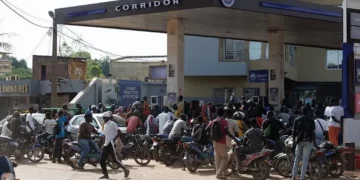No fewer than 10,000 people have been affected by flood, across four local government areas, since the current rainy season in the Taraba State.
The affected local governments are Ibi, lau, Karim-lamido and Jalingo, even as the State Emergency Management Agency is still assessing the impact on communities across the local areas.
Audu Echuseh, the executive secretary, Taraba State Emergency Management Agency, who disclosed this in a telephone interview with LEADERSHIP, said the state government is working out modalities to discourage any arrangement of Internally Displaced Persons (IDPs) camps in the state.
She said this has been considered because it is no longer a safer place for victims due to the attendant risk associated with it.
“We want to discourage camps; they are not really safe ground. It is a safer place compared to where they are coming from, but you can allow them to stay for a very long time because there might be outbreaks of disease and so on, even though the Red Cross is there to provide emergency medical services.
According to Echuseh, the state government has already approved working on the recovery process after the flooding period to relocate the people completely from the flood-prone areas.
“For the four local governments, we have more than ten thousand victims, but our agency is still assessing the impacts on the affected communities.”
She said, in Jalingo alone, over 200 households are affected, while in Lau and Karim-lamido, about 11 and 67 households are affected accordingly, not to mention the imminent wreck in Ibi local governments.
“Since the prediction by NiMET of potentially risk areas in Taraba State, the agency swung into action to identify such communities, and embarked on a sensitisation campaign to those residing in the riverine areas,” he said
She further stated that, prior to the rainy season, the state government through “the agency has identified a safer places for the people to move to”.
According to her, in spite of government efforts on the precautionary measures in the event of flooding, there are those who deliberately refused to move to safer areas, while those in Jalingo were rented an apartment instead of camps, pending the recovery process.
“When it happens for those who deliberately did not move, you can deny the fact that you will allow the impact to be overwhelming on them. It is our mandate to take responsibility despite the negligence of the communities in question.”
She expressed dismay that the state government provided resources to facilitate their relocation to the safer areas when most of them decried not having money to evacuate.
She reiterated the agency’s commitment to managing disasters of all kinds, adding that it is its responsibility to prevent, respond to, rehabilitate, and mitigate the impact as part of the agency’s proactive measures.
She called on people, especially those living around flood-prone areas, to relocate, saying disaster management is everybody’s responsibility.
She reiterated Governor Kefas’ passion for the safety and well-being of citizens of Taraba State.





